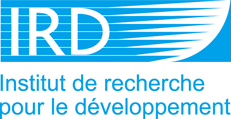Dominique Hervio-Heath
Dominique Hervio-Heath received a PhD in Parasitology from the University of Clermont Ferrand, France. She spent 4 years at the IFREMER (French Research Institute for the Exploitation of the Sea) in La Tremblade, working on shellfish diseases and focusing on the detection of different micro-organisms and identification of parameters their emergence at a local, national and EU scales. She carried out her post-doctorate studies on fish diseases at the Ministry of Fisheries and Oceans (Nanaimo) and at the University of British Columbia (Vancouver) and worked 4 more years in Canada on vaccine development with different Salmonid pathogens in collaboration with scientists from USA and Australia.
She is currently a research Scientist in environmental microbiology and at the head of the Bacteriology Unit from the Department of Microbiology, Environment and Phycotoxins (IFREMER, Brest, France). She is in charge of the Vibrio research program and involved in studies aiming 1) at evaluating the impact of environmental factors on the proliferation and emergence of pathogenic species in aquatic environments and 2) at understanding the bacterial community structure and evolution in relation to the environment. The goal of this research is to provide sufficient data and information to establish a mathematical model to predict the emergence of Vibrio spp. and subsequent Vibrio infections and outbreaks in human populations.
She is involved in scientific expertises for the French Ministry of Health, the French National Reference Laboratory “Microbiology of Molluscs” (DGAL, Ministry of Agriculture and Fisheries), for the EU CEN (since 2006) and WHO (Communicable Disease Surveillance and Response, 2009). She participated to joint FAO/WHO programme and working group meetings on the development of code of hygienic practices for Vibrio spp in seafood (Codex Committee on Food Hygiene, CCFH), Kyoto, Japan (2008-2009).
A need for a pro-active approach to risks factors for emerging or existing infections
Emerging diseases are commonly associated with specific factors such as climate changes, ecological modifications, international exchanges, human demographics and consumption habit changes and behavior and increasingly susceptible populations. To understand disease emergence it is important to investigate the agent itself but also its interactions with potential environmental parameters, reservoirs and vectors and, indirectly, its capacity to adapt to new hosts, including humans.
In the case of non-Vibrio cholerae infections, the emergence is more affected by water temperature increase, salinity decrease and other factors than extreme weather events. However, in the case of shellfish-borne disease outbreaks caused by enteric viruses, these extreme whether conditions (heavy rain falls, strong winds...) are important as they will impact and have a direct effect on the environment (sewage discharges into rivers and estuaries, increased filtration and concentration by shellfish.) and thus, increase the risk of public exposure to these pathogens.
Examples of shellfish-associated disease outbreaks and environmental investigations in France and Europe will be presented. The development of real-time monitoring systems will be discussed. We will also examine how the availability of survey networks, satellite data and data collected from more than 300 sites for over 25 years by IFREMER could provide a basis for developing predictive models to establish adequate prevention and control measures - for different coastal areas from France where increasing numbers of shellfish-associated outbreaks have been recorded.
If you wish to contact Dominique Hervio-Heath, please click here




